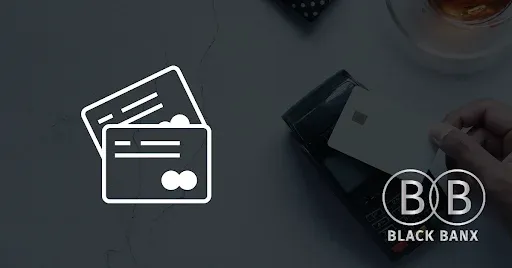In December 2022, Black Banx reported $1.1bn in revenue along with a growth of 5 million customers from their mid-year analysis. The digital banking service aims to create a borderless financial system where money flows seamlessly. Experiencing its fastest onboarding of new clients since its formation in 2015, the Group continues to show how fintech can reach even the world's most deprived areas. But is the financial technology revolution accessible to everyone?
The International Labor Organisation reported there are over 160 million migrant workers globally. Otherwise known as remittance customers, migrant workers have difficulty accessing traditional banking services due to a lack of identification, credit history and three month's proof of address. This is particularly challenging for temporary migrant workers in the UK who are employed seasonally. Cash use has also decreased significantly since the Covid-19 pandemic, with some stores imposing strict card-only policies.
As lack of address documentation proves difficult for migrant workers to open a traditional bank account in the UK, other places require a certain salary to open a standard bank account. For example, many banks in the UAE require an employer salary certificate and an income of AED 5,000. In addition, a six-month bank statement and reference from the worker's country of origin can also be requested – hurdles that only strengthen financial exclusion among these groups. So instead, the large population of workers rely on high-fee money transfers.
How do digital banks differ?
While digital banking services such as Black Banx, Monzo, Revolut and Wise require some form of photo identification to sign up successfully, they demand much less documentation than traditional high street banks. With the power of an app, users can transfer internationally, gain a debit card and savings account, all without visiting a physical bank branch.
Migrant workers sent home $794bn in 2022, reports the World Bank. With the rise in inflation, the value of remittances has decreased, but remittances continued to grow 5% last year. Lower than the 2021 statistic of 8.2%, the International Fund for Agricultural Development states the moderation occurred as “inflation erodes wages and pandemic-related support programmes end in rich countries.”
Foreign-born employees are finding the financial exclusion gap closing due to fintech creating greater accessibility that they have traditionally been refused. Black Banx's no-fuss approach to cross-border payments is what separates it from its competitors, such as industry leader Revolut. The company, headquartered in London, is the only one to provide a flat fee rather than a currency-based transaction fee.
Why can’t migrant workers stick to cash?
Although handling money in the form of cash and not being subject to banking fees is advantageous to some, it is hindering when needing to send money back home. A bank account is necessary for successful remittance. It also opens a gateway to other financial institutions. Migrant workers who leave developing nations are often financially illiterate. Fintech solutions mean that the once complicated banking process is limited to only a few steps and access to a smartphone. Operating in over 180 countries and 28 currencies, migrant workers can acquire a debit card, perform cross-border payments and even 24/7 crypto exchange.
Accessing one form of financial service opens the doors to another. With a basic bank account and building up a record of payments, savings and general usage, users will be eligible for a line of credit, a mobile phone contract and further housing opportunities.
Migrant workers can use Black Banx’s financial platform to substantiate their life within their country of work.
What about refugees?
Refugees – those escaping armed conflicts or persecution – face similar problems accessing a financial institution as migrant workers. For people fleeing their government, it will be challenging to obtain a passport, and for populations finding themselves part of war or civil unrest, they may not have time or the resources to find their official documentation. This leaves a high number of refugees and asylum seekers without any identifying documents, especially photo ID.
As of October 2022, there are 107 million displaced people globally, and 32.5 million are considered refugees. It’s not uncommon to be asked what item you would take with you if you were stranded on a deserted island. The majority of us these days would answer along the lines of a mobile phone. The same rings true for displaced populations. Aid workers are reporting an increase in the number of asylum seekers arriving at camps with a smartphone. Mobile phones are vital for ongoing communication between countries and keeping records during modern border migration. According to a study from Oxford University’s Humanitarian Innovation Project, refugees have a higher internet rate than the general population. So it is no surprise that mobile money among refugees is also on the rise.
Although Black Banx currently doesn’t offer account creation without a passport or driving licence, its mission of providing services to the underserved and the rise of mobile money among refugee groups means we may be seeing refugees catered for soon.



 StableDiffusion
StableDiffusion StableDiffusion
StableDiffusion StableDiffusion
StableDiffusion Photo by
Photo by  Photo by
Photo by  Photo by
Photo by 
 Photo by
Photo by  Photo by
Photo by  Photo by
Photo by  Photo by
Photo by  Photo by
Photo by 








